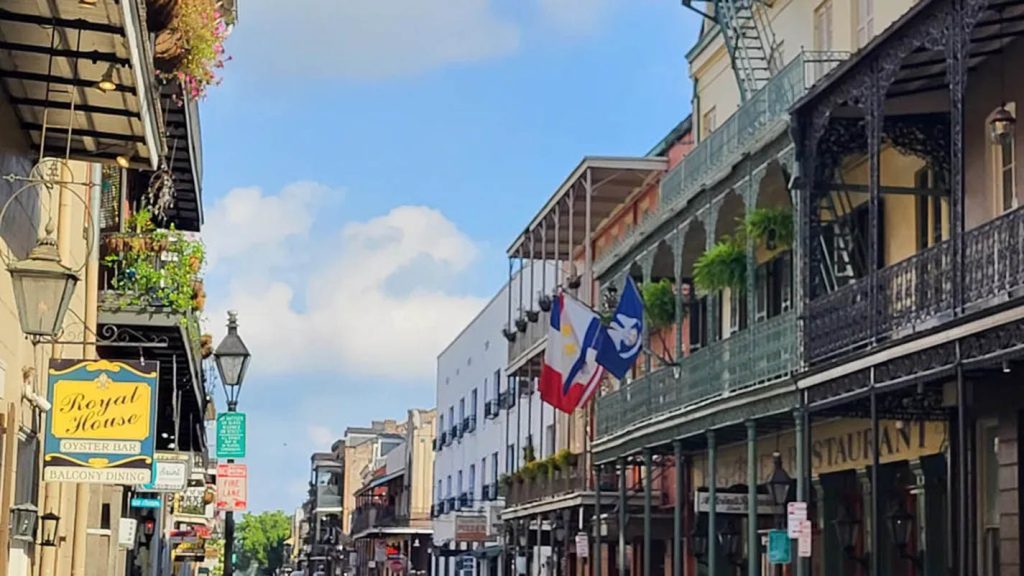Renowned for its rich cultural heritage, intriguing history, and exceptional culinary scene, New Orleans stands out as one of the most unique destinations in the United States. Whether it’s your inaugural visit or a returning adventure, the city promises a wealth of attractions and experiences. To ensure you get the most out of your time in New Orleans, I’m excited to share some practical tips and recommendations. I hope these insights help you fully immerse yourself in all that this remarkable city has to offer.
1. Practical Tips for Exploring New Orleans
(1) Plan Your Itinerary in Advance:
When preparing for your trip to New Orleans, taking the time to plan your itinerary in advance can greatly enhance your experience. The city is bursting with diverse attractions and activities, from historical landmarks and vibrant neighborhoods to unique cultural events and delicious dining options. To ensure you make the most of your visit, start by listing the attractions and experiences that interest you the most, such as the French Quarter, Garden District, or specific museums and restaurants.
Next, organize these activities based on their location and opening hours. This will help you create a logical route for each day, minimizing travel time between destinations and allowing you to efficiently explore different parts of the city. For example, you might plan to spend one day exploring the French Quarter’s historic sites and another day enjoying the arts and culture in the Marigny.
Consider also the time of year you’re visiting, as some attractions may have seasonal hours or special events. Booking tickets or reservations in advance for popular spots like the National WWII Museum or high-demand restaurants can save you from long lines and ensure you secure a spot. Additionally, checking the local calendar for festivals, parades, or concerts happening during your stay can provide opportunities to experience New Orleans’ lively cultural scene.
(2) Choose the Right Transportation:
New Orleans offers a range of transportation options, each suited to different types of travelers and their needs. Understanding these options will help you navigate the city efficiently and make the most of your time there.
- Car Rentals: Renting a car can be advantageous if you plan to explore beyond the city limits or prefer the flexibility to travel at your own pace. It’s particularly useful for visiting areas outside the central neighborhoods or for those traveling with a group or family. However, parking can be challenging and expensive in busy areas like the French Quarter, so be sure to check your hotel’s parking options and rates before committing to a rental car.
- Public Transit: New Orleans’ public transportation system includes buses and streetcars, which are convenient for getting around the city. The streetcar lines, such as the St. Charles Avenue line, offer scenic rides through historic neighborhoods and are a quintessential New Orleans experience. Public buses cover areas not served by streetcars and can be a practical option for reaching less central destinations. Consider purchasing a Jazzy Pass, which provides unlimited rides on buses and streetcars for a set period, offering both convenience and cost savings.
- Biking: With numerous bike rental stations scattered throughout the city, biking is a fantastic way to explore New Orleans. It’s an eco-friendly and enjoyable option, allowing you to experience the city’s neighborhoods up close. Bike paths and bike-friendly streets make cycling a viable choice for getting around, particularly in areas like the French Quarter, Garden District, and along the Mississippi River. Many bike rental services also offer guided bike tours, which can provide additional insights into the city’s history and culture.
- Walking: New Orleans is a pedestrian-friendly city with many attractions clustered together, especially in the French Quarter and nearby areas. Walking allows you to fully immerse yourself in the city’s atmosphere, explore charming streets, and stumble upon hidden gems. It’s also a great way to experience local shops, cafes, and street performances. Ensure you wear comfortable walking shoes and stay hydrated, particularly during the warmer months.

Each mode of transportation has its own benefits, and the best choice depends on your itinerary and preferences. Combining different options—such as using public transit for longer distances and walking or biking for shorter trips—can help you efficiently navigate New Orleans and fully enjoy all it has to offer.
(3) Be Prepared for Weather Changes:
New Orleans weather can be quite variable, especially during the summer months with high temperatures and humidity. Before you travel, check the weather forecast and pack appropriate clothing and protection. In the summer, lightweight and breathable clothing, sunglasses, and sunscreen are essential. During the rainy season, carrying a compact umbrella can help you handle unexpected downpours.
(4) Keep Your Belongings Safe:
While New Orleans is generally a safe city, it’s important to protect your belongings just as you would in any tourist destination. Be mindful of your wallet, phone, and other valuables, especially in crowded areas. Using anti-theft backpacks and keeping cash and cards in separate places can also be wise precautions.
(5) Savor the Local Cuisine:
New Orleans is renowned for its diverse and flavorful cuisine, making it essential to try local dishes during your visit. From Creole classics to Southern specialties, the city’s restaurants offer a delightful culinary experience. Don’t miss iconic dishes like gumbo, crab cakes, and beignets. Many restaurants also feature live music, offering a fantastic way to experience the local culture while enjoying your meal.
(6) Experience the Local Music Scene:
New Orleans is known as the birthplace of jazz, so experiencing the city’s music culture is a must. You can visit local bars, clubs, and music festivals to enjoy a variety of live performances. Frenchmen Street, in particular, is famous for its lively music scene, where you can listen to jazz, blues, and other genres. If you’re passionate about music, make sure to take advantage of these vibrant performances.
(7) Choose the Right Accommodation:
New Orleans offers a wide range of accommodation options, from luxurious hotels to budget-friendly inns. Choose accommodations based on your budget and preferences. If you want to experience the city’s historical charm, consider staying in one of the historic hotels in the French Quarter. For a quieter environment, the Garden District’s hotels may be more suitable. If you enjoy an artistic atmosphere, accommodations in the Marigny neighborhood will make you feel right at home.
2. Where to Stay in New Orleans
(1) Accommodation in the French Quarter:
The French Quarter is one of New Orleans’ most historic and culturally rich areas. Here, you’ll find charming historic hotels and boutique inns, such as the renowned Columns Hotel. These hotels often feature classical decor that transports you back to the 19th century. Staying in the French Quarter allows you to easily walk to major attractions, restaurants, and bars, immersing you in the city’s unique atmosphere.

(2) Accommodation in the Garden District:
If you prefer a tranquil setting and elegant surroundings, the Garden District is an excellent choice. Known for its beautiful gardens and classic architecture, this area offers many comfortable hotels and bed-and-breakfasts. Hotels located on St. Charles Avenue provide spacious rooms and an elegant environment. The Garden District’s peaceful ambiance is perfect for those looking to escape the hustle and bustle of the city.
(3) Accommodation in the Marigny Neighborhood:
The Marigny neighborhood is known for its vibrant arts and cultural scene. Here, you can find unique boutique hotels and modern accommodations. If you appreciate artistic vibes and musical culture, staying in Marigny will make you feel immersed in local creativity. Many of the neighborhood’s hotels are close to music venues and art galleries, allowing you to easily engage with the local cultural scene.
(4) Tips for Booking Accommodation:
- Book in Advance: New Orleans is a highly sought-after tourist destination, particularly during peak seasons like festivals, Mardi Gras, and major music events. To secure the best accommodations and potentially benefit from lower rates, it’s crucial to book your stay well in advance. Many of the city’s popular hotels and unique lodging options fill up quickly, so reserving your room early not only guarantees a spot but also gives you access to a broader selection of choices. Additionally, early booking often comes with perks like early-bird discounts or better room options, which can enhance your overall experience.
- Check Reviews: Before finalizing your accommodation, thoroughly researching reviews from previous guests can provide valuable insights into the quality of the hotel or rental. Websites like TripAdvisor, Booking.com, and Yelp feature a wide range of user feedback that can reveal crucial details about cleanliness, service, and overall guest satisfaction. Pay attention to both positive and negative reviews to get a balanced perspective. Look for patterns in the feedback—frequent mentions of issues like noise, poor service, or unclean rooms can be red flags. Reviews from recent guests are especially useful as they reflect the current state of the property.
- Consider Location: The location of your accommodation plays a significant role in your travel experience. Choosing a hotel or rental that is centrally located near major attractions, restaurants, and entertainment venues can greatly enhance your convenience. For those planning to explore the city by foot or bike, staying in or near the city center, such as the French Quarter or Garden District, allows easy access to popular sights and minimizes the need for extensive transportation. Additionally, proximity to public transit options, like streetcars and buses, can simplify your travel within the city, making it easier to reach destinations that are farther away.
- Prioritize Safety: Safety should always be a top priority when selecting accommodation. Ensure that your chosen hotel or inn has adequate security measures, such as well-lit entrances, secure locks on doors, and 24-hour front desk services. It’s also wise to check if the property has security cameras and a safe for valuables. Beyond the hotel itself, research the safety of the surrounding neighborhood. Look up crime rates and recent safety reports to gauge whether the area is suitable for tourists. Asking for recommendations from locals or reading neighborhood-specific reviews can provide additional assurance about the safety of your stay.
New Orleans is a city full of vibrant energy and unique charm. From the lively French Quarter to the elegant Garden District, and from the artistic Marigny neighborhood to the array of local activities, there are countless opportunities for exploration and enjoyment. Whether you’re interested in history, music, or food, New Orleans offers a rich and diverse experience. I hope these practical tips help you plan your visit and make the most of your time in this fascinating city.
With a bit of preparation and an open mind, you’re sure to have an unforgettable experience in New Orleans. Enjoy your trip, and may you take home many wonderful memories from this remarkable city.